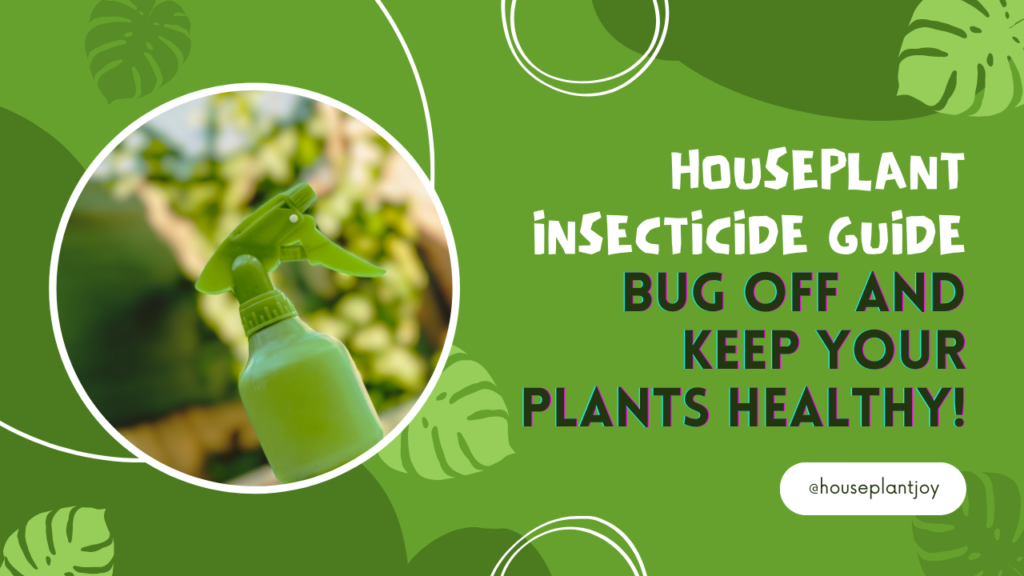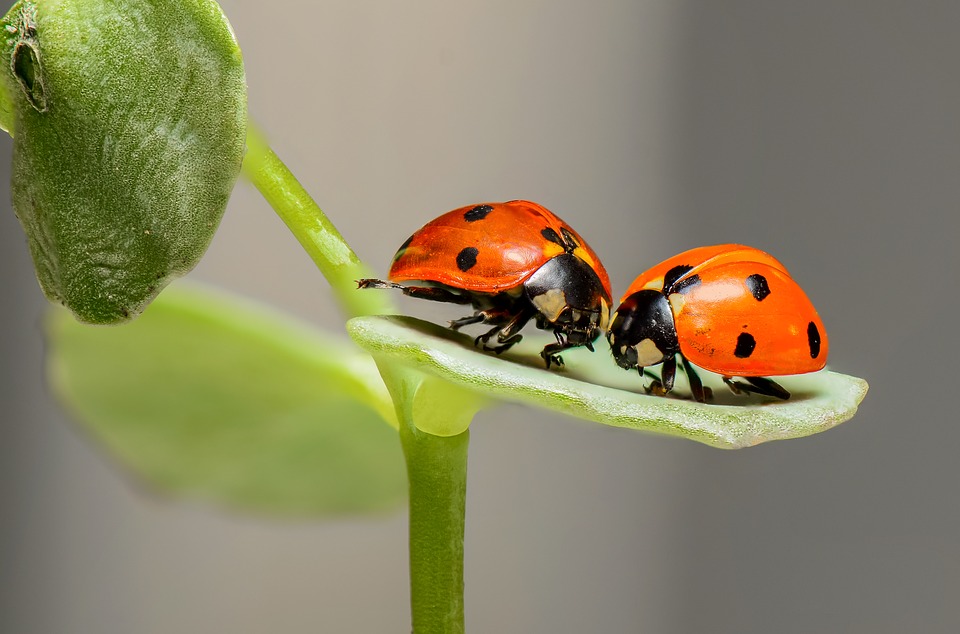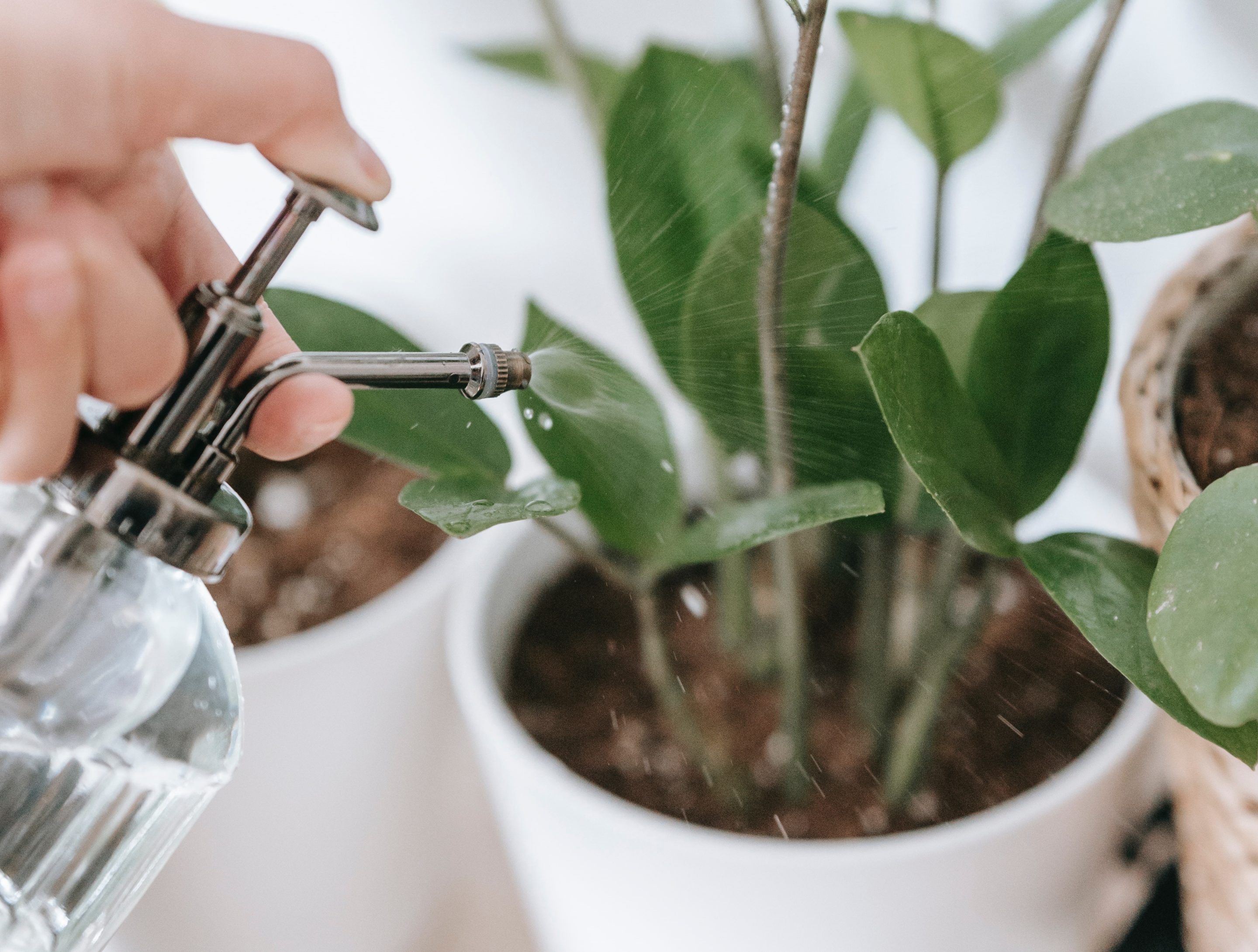HousePlantJoy is supported by our audience. When you purchase through one of our links, we may earn a small affiliate commission. As an Amazon Associate I earn from qualifying purchases. Your cost is not affected.
==================
Houseplant Insecticide is a solution designed to eliminate common indoor plant pests effectively. You’ve come to the right place! Explore some of the best plant-safe options for controlling insects and pests. Keep your indoor plants healthy. Always thrive with these tried-and-true solutions for house plant insecticide.
Having some houseplants around is a great way to bring the outdoors inside. Like their outdoor counterparts, indoor plants are prone to pest infestations and could cause harm. Chemical pesticides reduce pest populations but harm humans, animals, and the environment. It is good to use organic insecticides for indoor plants because of less of a risk to humans and other animals.
This page discusses organic houseplant insecticide positives and downsides. This page discusses the most common houseplant pests and their symptoms. We will list organic insecticides and their safe and effective applications. These include neem oil, soap spray, garlic spray, and diatomaceous earth.
By consuming a plant’s leaves, stems, and roots, insects in the home can cause considerable harm. Indoor plant pests include aphids, spider mites, mealybugs, scale insects, and whiteflies.
You must identify pests that have invaded your houseplants before you can treat them. You must check the common signs of infestation like the following:
-
the presence of webs or webbing
-
tiny holes in the leaves
-
yellowing or browning of the leaves
-
sticky residue on the leaves
Organic Houseplants Insecticide
Due to their lesser toxicity, they use organic than chemical insecticides. It is safer when treating pest infestations on indoor plants. The following are some of the most efficient organic pesticides for indoor plants:
Neem Oil
Soap Spray
Garlic Spray
Diatomaceous Earth Powder
Natural diatomaceous earth powder is from ancient marine organisms’ extract known as diatoms. It is an efficient insecticide because it causes the insects to lose water. Apply diatomaceous earth as a fine layer to the soil and the area around the plant’s roots. Keeping the powder away from the leaves is best to prevent irritation. Repeat the treatment every 7-10 days.
Preventing Houseplant Insect Infestation
The addition of houseplants to a home is always a welcome sight. It may purify the air, reduce stress, and enhance the visual appeal of your home and neighborhood. There are many advantages but also negatives. Some of these are maintaining it healthy and pest-free. Learn preventative measures to make indoor plants as healthy and productive as possible.
Importance of Plant Hygiene
Choosing the Right Soil
Providing Proper Sunlight
Regular Inspecting Plants
Preventing Conditions Using Houseplant Insecticide
This informative video from @HungrySciANNtist2020 will teach you how to make an effective natural houseplant insecticide.
Houseplant Insecticide: Say Goodbye to Pesky Pests!
Protect your houseplants from insect infestation by practicing good plant hygiene. To discourage pests from making your plants their home, check it daily. Keep them tidy and remove any decaying or dead parts. Healthy soil, ample sunlight, routine checks, and isolation from sick plants are essential. If you follow these measures, your houseplants will be safe from pests. Sustain the positive effects of plants on our mental health and the environment.
Organic insecticides could be the last resort if conventional eradication methods have failed. Repel the pests in your yard or home with the help of neem oil, soap spray, garlic spray, or diatomaceous earth. To sum up, maintaining healthy houseplants free of pests is essential. It requires a combination of preventative measures and organic remedies. If you take the advice in this article, your plants will thrive for years. Always remember that prevention is better than cure in planting care.
Your plants may still become plagued with insects despite your best attempts. Organic houseplant insecticides are a safe and effective method of insect population control. Neem oil, soap spray, garlic spray, and diatomaceous earth are all effective pesticides. It won’t harm your plants or home. The effectiveness of these organic pesticides against pest populations does not threaten. It doesn’t harm human, animal, or environmental health. Thus, paying great attention to and following the guidelines when using is vital. Failing could result in negative consequences.







